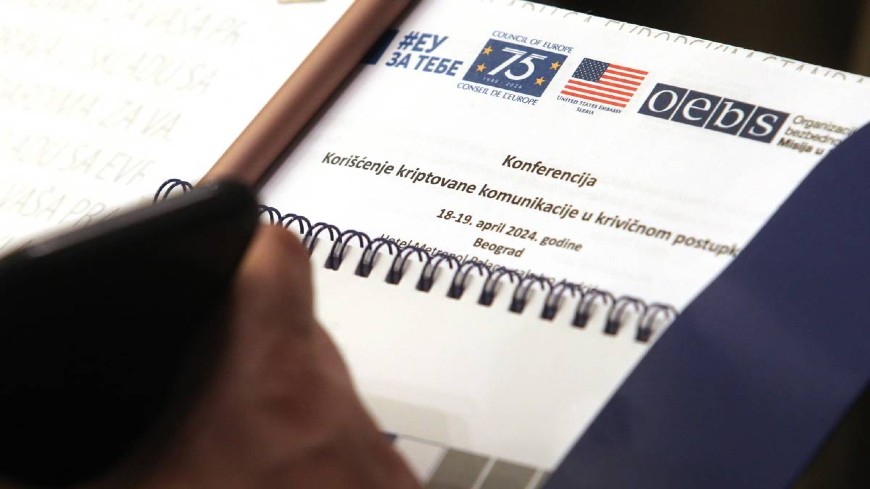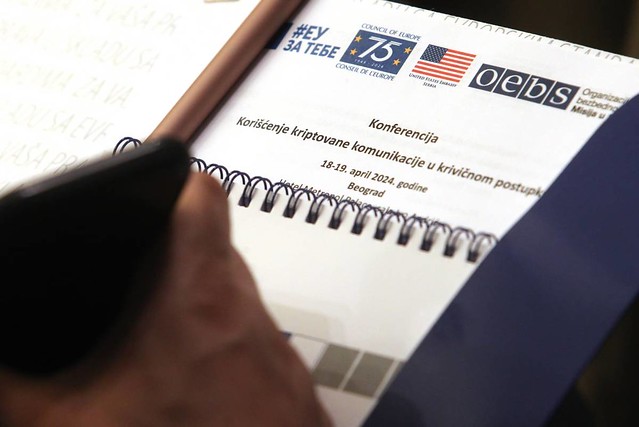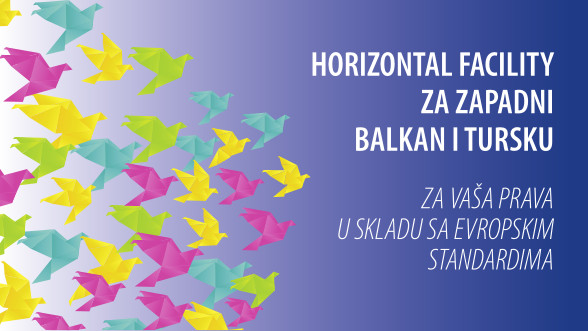A regional two-day conference on legal aspects of the use of data from encrypted messaging services as evidence in criminal proceedings started in Belgrade today. Its objective is to allow legal professionals from the Western Balkans region to learn from experience of their peers form other countries where this type of evidence has been used and challenged.
The conference gathers more than a hundred lawyers - prosecutors, defence lawyers, judges and scholars. It is organized under the joint action of the European Union and the Council of Europe “Strengthening human rights protection in Serbia”, the Bureau of International Narcotics and Law Enforcement Affairs within the US Embassy in Belgrade, the OSCE Mission to Serbia and the Council of Europe project “Preventing Money Laundering and Terrorist Financing in Serbia” supported by the Swedish Development Cooperation Agency.
Christopher Hill, the US ambassador to Serbia said: “I am pleased to see our partners in the EU, in the region, and professionals from the United States here today to discuss the challenges that judicial systems face in handling encrypted communications. We appreciate you sharing your experiences in this area as we seek to understand how Serbia can utilize this important evidentiary tool. The United States is proud to be a partner in promoting the independence of the Serbian judiciary.”
The EU Ambassador to Serbia, Emanuele Giaufret, said on this occasion: “The EU is acting to tackle the challenges of encrypted communication in criminal proceedings to strike the required balance between protection of fundamental rights and the digital security of both citizens and businesses and efficiency to fight crime. This is reflected in the Council of the European Union resolution – security through encryption and security despite encryption and the European Commission proposal of concrete measures to support law enforcement authorities to address these challenges. This topic affects Serbia as well. The EU is therefore providing assistance and EU Member States’ peer support to exchange on practices and improve the skills and capacities of Serbian authorities in this field.”
The ambassador Jan Braathu, Head of the OSCE Mission to Serbia, underlined that an exchange of knowledge of experience among lawyers from different jurisdictions which the OSCE regularly facilitates, can help them address complex topics in the field of criminal justice, like those discussed at this conference.
János Babity, the Head of the Council of Europe Office in Belgrade, stressed that the membership of Serbia in the Council of Europe helped its citizens in the protection of their human rights and contributed to an alignment of its legal framework with the European standards. “During 75 years of Council of Europe’s existence and 21 years of Serbia’s membership in the organisation, many important documents have been adopted. One such document, crucial for today’s discussion, is the Budapest Convention on Cybercrime. The Council of Europe remains an ally to the Republic of Serbia in supporting it in implementing its human rights obligations through technical assistance programmes,” concluded Babity.
The event provides a comparative review of the relevant laws and practices, with presentations of practices in Belgium, the United States, Montenegro, and a presentation of the relevant case-law of the European Court of Human Rights.
Jasmina Vasović, the President of the Supreme Court, Zagorka Dolovac, the Prosecutor General, Branislav Stojanović, the Assistant Minister of Justice and Veljko Delibašić, the President of the Bar Association of Serbia also addressed the participants in the opening part of the event.




